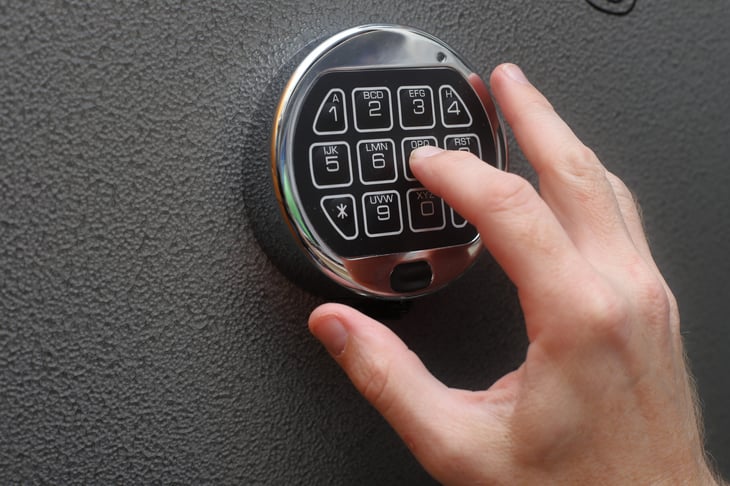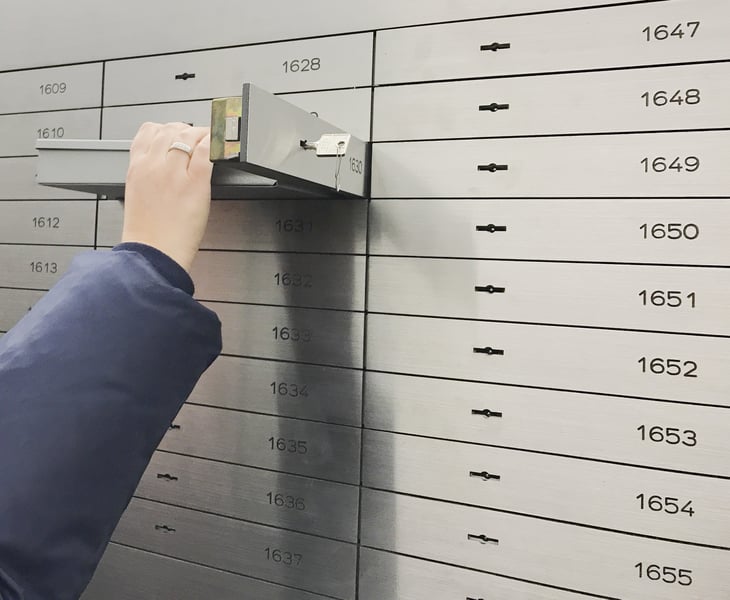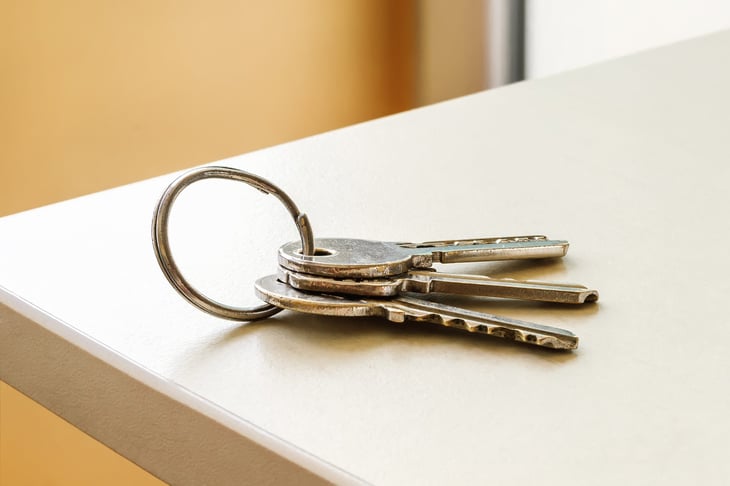
We have so many important documents in our lives, and it’s easy to let them pile up in a messy drawer.
There are better — and smarter — solutions, though.
Ron B. asks Money Talks News:
“Where would you suggest storing: car titles, birth certificates, marriage licenses, other important paperwork?”
It’s a great question, and it’s applicable to every one of us. We all have Social Security cards, tax returns and, hopefully, a will and other estate-planning documents.
We consulted several financial experts to provide a clear answer on the best spot to put them — and their tips for how to go about it.
In-home safe

There’s no place like home.
Keeping your important documents within reach is convenient — just make sure you keep them safe.
The president of Massachusetts-based American Private Wealth, Kashif A. Ahmed, tells Money Talks News that these documents should be kept securely in a fireproof and waterproof safe.
Carol Fabbri, a certified financial planner and founder of Fair Advisors in Morrison, Colorado, takes it a step further by recommending that these documents should also be ready on the fly.
“I live in the mountains of Colorado and during fire season, we always have a ‘go-box’ with our most essential items,” Fabbri tells Money Talks News. “These items include wedding albums and family heirlooms. The things that can’t be uploaded or replaced.”
Safe deposit box

This is a popular method people use outside of the home.
“The best and most convenient place would be a safe located at your personal residence, followed by a safety deposit box at the bank,” certified financial planner Chris Mankoff tells Money Talks News. Mankoff is the chief portfolio strategist with JTL Wealth Partners in Plano, Texas.
Safe deposit boxes keep your important documents locked away in a safe location. Not only does this provide security against ill-intentioned people, but it also protects against any disasters like a fire or flood that can happen at home.
They do have their drawbacks, though, as we detail in “5 Reasons Not to Use a Safe Deposit Box.” One is that if you need your documents ASAP and the bank is closed, then you’re out of luck.
The cloud

We live in a digital world, and your documents shouldn’t be exempt.
“The originals of all the essential documents should be scanned and uploaded to a secure location in the cloud,” Fabbri says. “I like Everplans because it is secure and, if anything happened to me, my family could find everything easily. Originals should be kept in a safe, ideally away from your home.”
Ahmed’s cloud provider of choice is Carbonite.
Mankoff provided readers with a couple of options.
“I personally use Microsoft OneDrive and would recommend that as a top option to store documents electronically. I offer access to a secure vault to my clients through RightCapital, which is the platform I use for client financial plans,” he says.
Tip: Spread them out and have duplicates

Don’t pick just one of these methods: If anything, use all three.
“Keep them in multiple formats and in multiple locations,” Ahmed says. And don’t just put them in the cloud. “Have an external hard drive that you back up to as well. This way, a lot of locations need to be lost (or) compromised for you to truly lose your important documents,” he says.
Money Talks News Founder Stacy Johnson recommends even taking your documents to a trusted friend’s or relative’s house. This is especially important if you live in an area prone to natural disasters like hurricanes, and your trusted person lives in a more stable environment.
It ensures that in the worst possible situation, your important information will still be somewhere safe.
Tip: Tell the right people

The unfortunate truth is that we aren’t going to be here forever, and we can’t predict the future either.
No matter what storage method you use, you should let a trusted person, or persons, know about it. This way if something ever happens to you, loved ones know where to find your important information.
Tip: Give them access

Give your trusted person copies of codes, keys or whatever else they’d need to access your documents in your absence.
“It is important that the location and any access codes or keys are made available to any interested parties in the unexpected event such as incapacitation or death,” Mankoff says. “I keep my important documents in a safe at my home and my spouse knows where and how to locate and access the documents.”
Ask Money Talks News

Ask Money Talks News is a series answering financial questions submitted by Money Talks News readers and podcast listeners. If you enjoy the series, sign up for the Money Talks Newsletter so you don’t miss the next edition.
If you have a question for the series, here’s how to submit it:
- Hit “reply” to the Money Talks Newsletter.
- Change the email subject line to Ask Money Talks News.
- Put your question in the email. Make sure to include enough detail for us to fully understand your question and any relevant context — but keep it all under 50 words.
- Hit “send.”
We can’t answer every question we receive, of course, but we do prioritize questions from Money Talks News members and questions that apply to a majority of our audience.






Add a Comment
Our Policy: We welcome relevant and respectful comments in order to foster healthy and informative discussions. All other comments may be removed. Comments with links are automatically held for moderation.